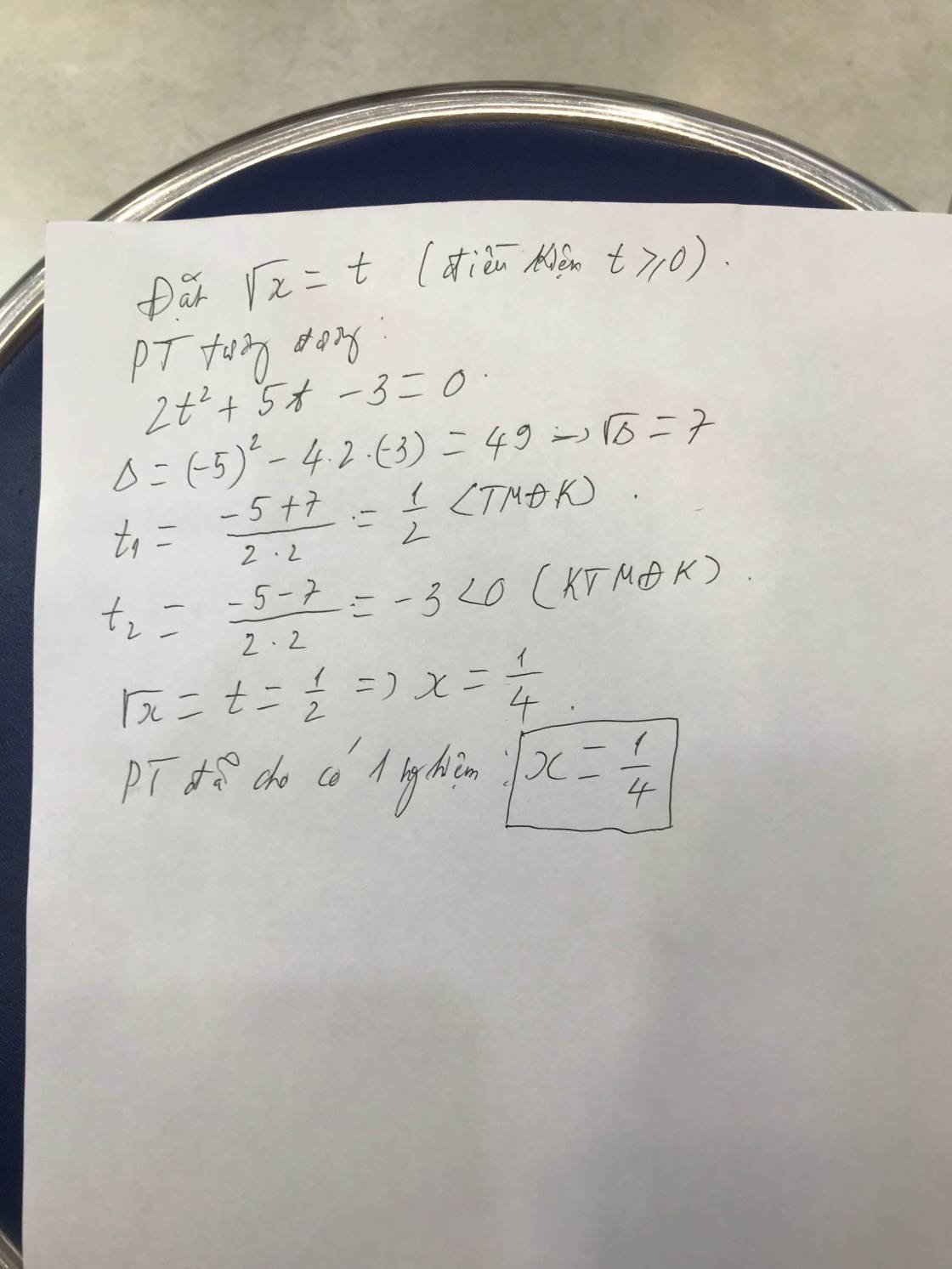Rút gọn các biểu thức sau:
A= \(3\left(x+2\sqrt{x}\right)-\left(\sqrt{x}-1\right)\left(\sqrt{x}+1\right)\)
B= \(\left(\sqrt{x}+1\right)\left(\sqrt{x}+3\right)-2\left(\sqrt{x}-1\right)^2\)
C= \(3x-3\sqrt{x}-2+\left(\sqrt{x}-1\right)\left(\sqrt{x}+1\right)\)
D= \(\left(\sqrt{x}+3\right)\left(\sqrt{x}-3\right)-\left(2\sqrt{x}+1\right)\left(\sqrt{x}-2\right)\)
E= \(\left(\sqrt{x}+4\right)\left(\sqrt{x}-4\right)-\left(2\sqrt{x}-1\right)\left(\sqrt{x}+2\right)\)


\(A=3\left(x+2\sqrt{x}\right)-\left(\sqrt{x}-1\right)\left(\sqrt{x}+1\right)\)
\(=3x+6\sqrt{x}-\left(x-1\right)\)
\(=3x+6\sqrt{x}-x+1\)
\(=2x+6\sqrt{x}+1\)
\(B=\left(\sqrt{x}+1\right)\left(\sqrt{x}+3\right)-2\left(\sqrt{x}-1\right)^2\)
\(=x+3\sqrt{x}+\sqrt{x}+3-2\left(x-2\sqrt{x}+1\right)\)
\(=x+4\sqrt{x}+3-2x+4\sqrt{x}-2\)
\(=-x+8\sqrt{x}+1\)
\(C=3x-3\sqrt{x}-2+\left(\sqrt{x}-1\right)\left(\sqrt{x}+1\right)\)
\(=3x-3\sqrt{x}-2+\left(\sqrt{x^2}-1\right)\)
\(=3x-3\sqrt{x}-2+x-1\)
\(=4x-3\sqrt{x}-3\)
\(D=\left(\sqrt{x}+3\right)\left(\sqrt{x}-3\right)-\left(2\sqrt{x}+1\right)\left(\sqrt{x}-2\right)\)
\(=x-9-\left(2x-3\sqrt{x}-2\right)\)
\(=x-9-2x+3\sqrt{x}+2\)
\(=-x+3\sqrt{x}-7\)
\(E=\left(\sqrt{x}+4\right)\left(\sqrt{x}-4\right)-2\left(2\sqrt{x}-1\right)\left(\sqrt{x}+2\right)\)
\(=\sqrt{x^2}-2^2-2\left(2x+4\sqrt{x}-\sqrt{x}-2\right)\)
\(=x-4-2\left(2x+3\sqrt{x}-2\right)\)
\(=x-4-4x-6\sqrt{x}+4\)
\(=-3-6\sqrt{x}\)